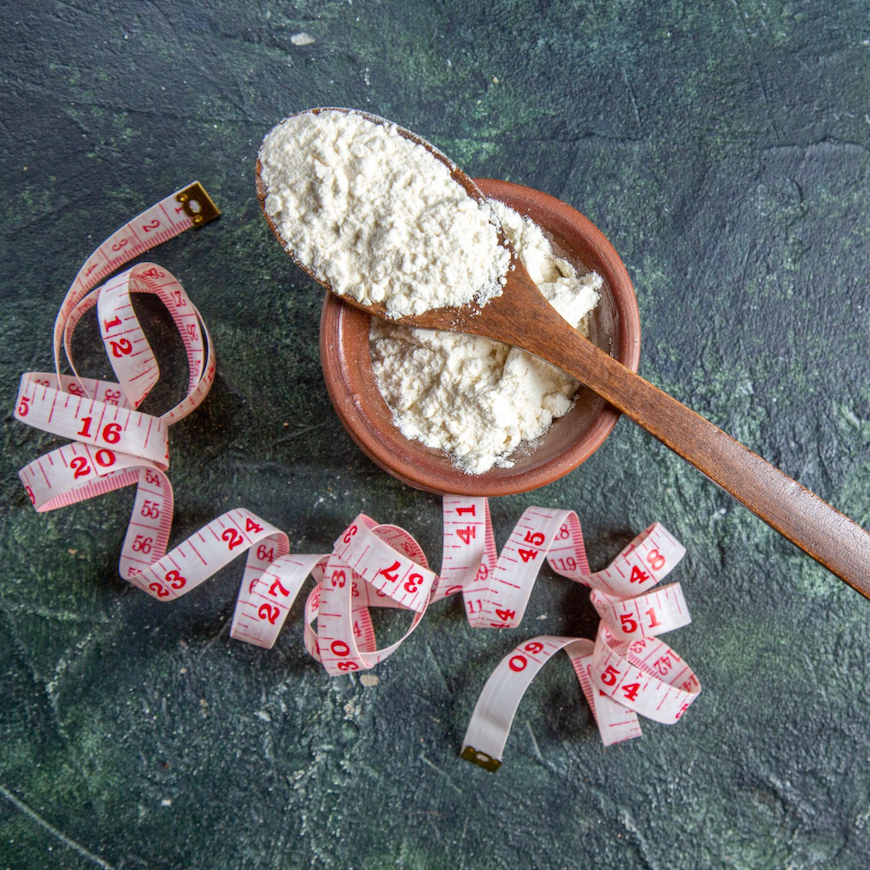When it comes to fitness and nutrition, creatine supplements often steal the spotlight, but there’s still some confusion about who can benefit from them. Many people think of creatine as primarily for men, especially in the world of bodybuilding.
However, recent insights suggest that women can also gain from these supplements. In this article, we’ll explore what creatine is, its benefits for women, and what a dietitian has to say about its use.
What Are Creatine Supplements?
Okay, so what exactly is creatine? Well, it’s a naturally occurring compound in your body, mostly in muscle cells. You can also get it from foods like fish and meat. Creatine supplements are just a concentrated form of this stuff, designed to boost your body’s stores.
It’s become super popular, especially among athletes and people into fitness, because of its potential to help with strength and muscle growth.
How Do Creatine Supplements Work?
Basically, creatine helps your muscles produce energy during heavy lifting or high-intensity exercise. It does this by increasing the availability of ATP, which is like the fuel your muscles use.
This allows you to produce more ATP, which can lead to improved performance. It’s not magic, but it can give you that extra edge.
Types of Creatine Available
When you go to buy creatine, you’ll see there are a bunch of different types. Here’s a quick rundown:
- Creatine Monohydrate: This is the most common form. It’s also usually the cheapest, so that’s a plus.
- Creatine Ethyl Ester: Some claim it’s better absorbed, but the research is mixed.
- Creatine Hydrochloride (HCL): This is supposed to be more soluble in water, which might reduce stomach issues for some people.
- Buffered Creatine: Designed to reduce bloating and stomach discomfort.
Honestly, most people just stick with creatine monohydrate because it’s effective and affordable. There’s no real need to overcomplicate things unless you have specific issues with the monohydrate form.
It’s also important to check for third-party testing to ensure you’re getting a safe and pure product. Look for labels like “Informed Choice” or “NSF Certified for Sport”.
👉 Read also: What is creatine? Potential benefits and dangers
Benefits of Creatine for Women

Creatine isn’t just for the guys pumping iron! Women can totally benefit from it too. It’s not just about getting huge muscles; it’s about overall health and performance. Women often have lower creatine stores than men, so supplementing can really make a difference.
Enhancing Muscle Strength
Creatine can help women get stronger, especially when combined with resistance training. This means you can push harder and see better results. It’s not about bulking up; it’s about increasing strength and power. More research is needed to fully understand the effects, but initial findings are promising.
Supporting Recovery After Workouts
Creatine can also help with recovery after a tough workout. It reduces muscle damage and inflammation, so you’re not as sore the next day.
This means you can get back to training sooner and stay consistent with your fitness goals. It’s especially helpful for high-intensity activities like sprints or interval training.
Potential Cognitive Benefits
It’s not just about the body; creatine might also boost brain function. Some studies suggest it can improve memory and focus, especially in situations where the brain is under stress, like sleep deprivation.
Creatine helps replenish ATP, which is the main source of energy for cells. This can lead to improvements in muscle strength, recovery, and potentially even cognitive function. It’s a supplement worth considering for women looking to boost their overall performance and well-being.
Who Should Consider Taking Creatine?
Active Women and Athletes
If you’re hitting the gym regularly or involved in sports, creatine might be something to think about. Creatine can give you that extra oomph during high-intensity exercises. It’s not just for bodybuilders; even if you’re into CrossFit, running, or just enjoy a good workout, creatine could help improve your performance and recovery.
Women Looking to Build Muscle
Trying to add some muscle? Creatine can be a useful tool. It helps increase muscle mass when combined with resistance training. It’s not going to magically turn you into a bodybuilder, but it can support your efforts in building a bit more lean muscle. Remember, it works best when you’re also putting in the work at the gym and eating right.
Women with Low Dietary Creatine
Some of us just don’t get enough creatine through our diet. Since women typically have lower creatine stores than men, supplementation can be particularly helpful. If you’re not eating a lot of red meat or fish (the main dietary sources of creatine), you might be running low.
Creatine is naturally found in meat and fish, so vegetarians and vegans often have lower levels. Supplementing can help bring those levels up to where they need to be, supporting overall muscle function and energy levels.
Safety and Side Effects of Creatine
Common Side Effects
Okay, so let’s talk about the potential downsides:
- Some people experience mild stomach issues, like bloating or diarrhea, especially when they first start taking it. This is often due to taking too much at once.
- Water retention is another common one. Creatine pulls water into your muscles, which can lead to a temporary increase on the scale.
- Rarely, some individuals might experience muscle cramps. Staying hydrated can help minimize this.
It’s important to start with a lower dose and gradually increase it to see how your body reacts.
Who Should Avoid Creatine?
While creatine is safe for most, there are certain situations where it’s best to proceed with caution or avoid it altogether. If you have pre-existing kidney problems, it’s crucial to talk to your doctor before starting creatine.
While creatine itself isn’t necessarily harmful to healthy kidneys, it can put extra stress on already compromised ones. Also, if you’re pregnant or breastfeeding, there isn’t enough research to confirm its safety, so it’s generally recommended to avoid it during these times. It’s always better to be safe than sorry!
Consulting with a Healthcare Professional
Seriously, before you jump on the creatine bandwagon, have a chat with your doctor or a registered dietitian. They can assess your individual health status, consider any medications you’re taking, and give you personalized advice. They can also help you determine if creatine is right for you and what dosage would be appropriate.
Think of it as getting a second opinion from someone who knows your medical history. Remember, creatine supplements are generally safe, but individual circumstances matter.
How to Take Creatine Effectively
Recommended Dosage
Okay, so you’re thinking about adding creatine to your routine? Great! Let’s talk numbers. The most common approach is to start with a loading phase. This means taking a higher dose, like 20 grams a day, split into four 5-gram servings, for about 5-7 days.
This helps saturate your muscles quickly. After that, you switch to a maintenance dose of 3-5 grams per day. Some people skip the loading phase altogether and just stick to the 3-5 grams daily from the start. It takes a bit longer to see the effects, but it’s also gentler on your system.
Timing Your Creatine Intake
Does it matter when you take creatine? Honestly, the research is a bit all over the place. Some say taking it post-workout is best because your muscles are more receptive then. Others swear by pre-workout for an energy boost.
But really, consistency is key. Just find a time that works for you and stick with it. Whether it’s morning, noon, or night, before or after your workout, the most important thing is that you’re taking it every day.
Combining Creatine with Other Supplements
Creatine plays well with others! It’s often mixed with protein powder, which makes a lot of sense if you’re trying to build muscle. Some studies suggest that taking creatine with carbs can improve absorption, so you could mix it with a sugary drink or a meal. Here’s a quick rundown:
- Protein Powder: A classic combo for muscle growth and recovery.
- Carbohydrates: May help with creatine absorption.
- Beta-Alanine: Another supplement that can boost performance.
It’s always a good idea to check with a dietitian or doctor before combining multiple supplements, just to make sure there are no potential interactions or contraindications.
Recommended Creatine Supplements for Women
1. 5000mg Creatine Monohydrate Powder Optimized for Women
This supplement combines pure creatine monohydrate with BCAAs and collagen, aiming to enhance muscle tone, especially in the glutes, and support recovery.
2. Zeylamum Creatine Monohydrate for Women
Designed specifically for women, this chewable creatine supplement is praised for its taste and convenience, supporting muscle growth and energy.
3. One Sol Creatine for Women Booty Gain
An all-natural creatine powder with Creapure, it aims to increase lean muscle mass, reduce recovery time, and promote brain and bone health.Amazon+1Amazon+1
4. Nutricost Creatine Monohydrate Powder for Women
Offering flavored options, this micronized creatine powder supports athletic performance and muscle growth.
5. Thorne Creatine Monohydrate
A high-quality, NSF Certified for Sport supplement, ensuring purity and safety, supporting muscle strength and cognitive function.
6. Optimum Nutrition Micronized Creatine Monohydrate Powder
A well-known brand offering pure creatine monohydrate to support muscle size, strength, and recovery.
7. Bucked Up Pure Micronized Creatine Monohydrate
This supplement ensures maximum bioavailability, allowing effective utilization without the bloating often associated with other creatine products.Amazon
8. Momentous Creatine Monohydrate Powder
Utilizing Creapure, this powder supports strength, lean muscle, and recovery, suitable for both men and women.
Research on Women and Creatine
Current Studies and Findings
A lot of the early research? Yeah, it was mostly done on men. That’s just how it was. But, things are changing, and we’re starting to see more studies focusing specifically on women and how creatine affects them. Some studies suggest that creatine can really help with muscle strength, which is awesome.
For example, there was this one study where women took creatine and did resistance training, and they saw some pretty good gains in strength. But, it’s not all sunshine and rainbows. Some reviews say we still don’t have enough solid proof to say for sure how creatine impacts sports performance in women. So, the jury is still kind of out, but the initial signs are promising.
Future Directions for Research
So, what’s next? Well, the future of creatine research for women looks pretty bright. Scientists are starting to realize that we can’t just assume that what works for men will also work for women. We need studies that are designed specifically to answer questions about women’s health and performance.
I think we’ll see more research looking at how creatine affects things like bone health, cognitive function, and even hormonal balance in women. And, of course, more studies on muscle strength and sports performance are always welcome. It’s all about getting a clearer picture of how creatine can best be used to support women’s health and fitness goals.
It’s important to remember that everyone’s body is different, and what works for one person might not work for another. If you’re thinking about taking creatine, it’s always a good idea to talk to a healthcare professional or a registered dietitian to see if it’s right for you.
Final Thoughts on Creatine for Women
So, should women take creatine? The short answer is yes, but with some considerations. Creatine can be a helpful supplement for women looking to boost their performance, build muscle, or recover better after workouts. It’s generally safe for most women, except for those with specific health concerns like kidney issues or during pregnancy.
If you’re thinking about adding it to your routine, it might be a good idea to chat with a healthcare professional first. Remember, everyone’s body is different, and what works for one person might not work for another. Overall, if you’re active and want to see some gains, creatine could be worth a shot.
Frequently Asked Questions
Can women benefit from taking creatine?
Yes, women can benefit from creatine. It can help improve muscle strength, support recovery, and even boost brain health.
Are there any side effects of creatine?
Some common side effects of creatine include stomach upset and weight gain. It's important to stay hydrated while taking it.
Who should not take creatine?
Women with kidney problems or those who are pregnant should avoid creatine. It's best to consult a doctor before starting any supplement.
How should I take creatine?
Creatine is usually taken in powder form. A common approach is to take 3-5 grams daily, but timing can vary depending on your workout schedule.
Does creatine help with weight loss?
Creatine itself doesn't cause weight loss, but it can help you build muscle. More muscle can lead to a higher metabolism, which may help with weight management.








